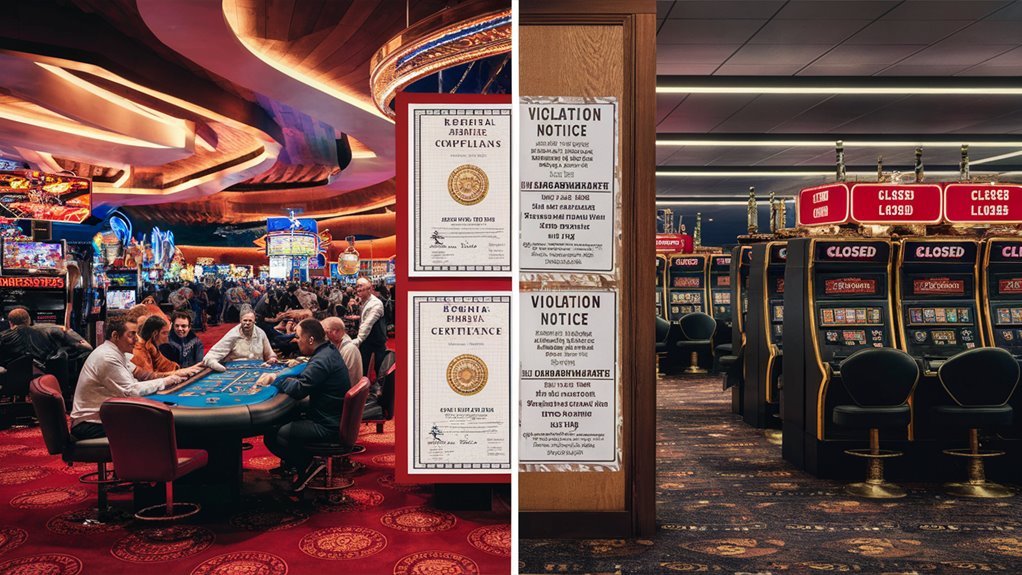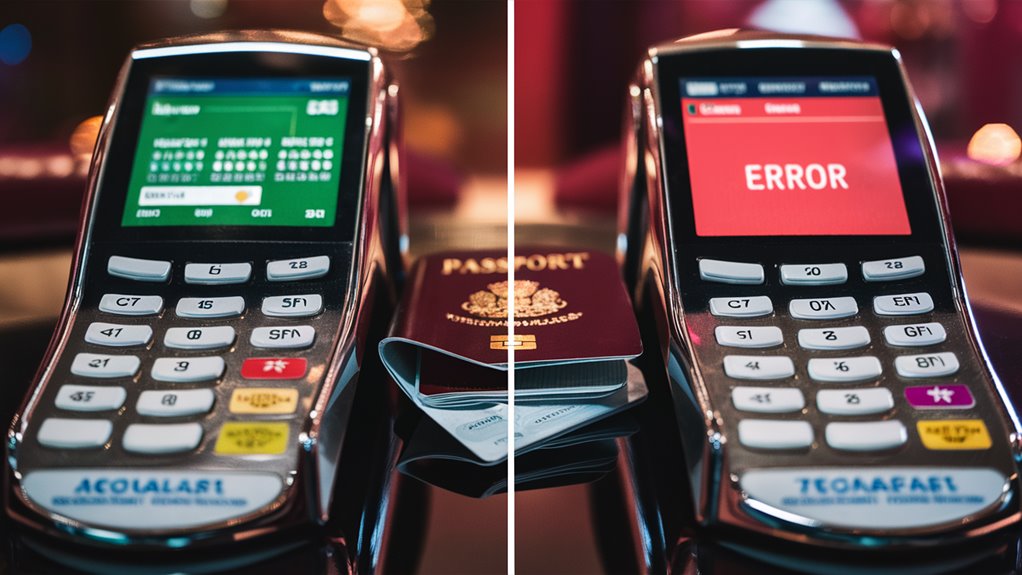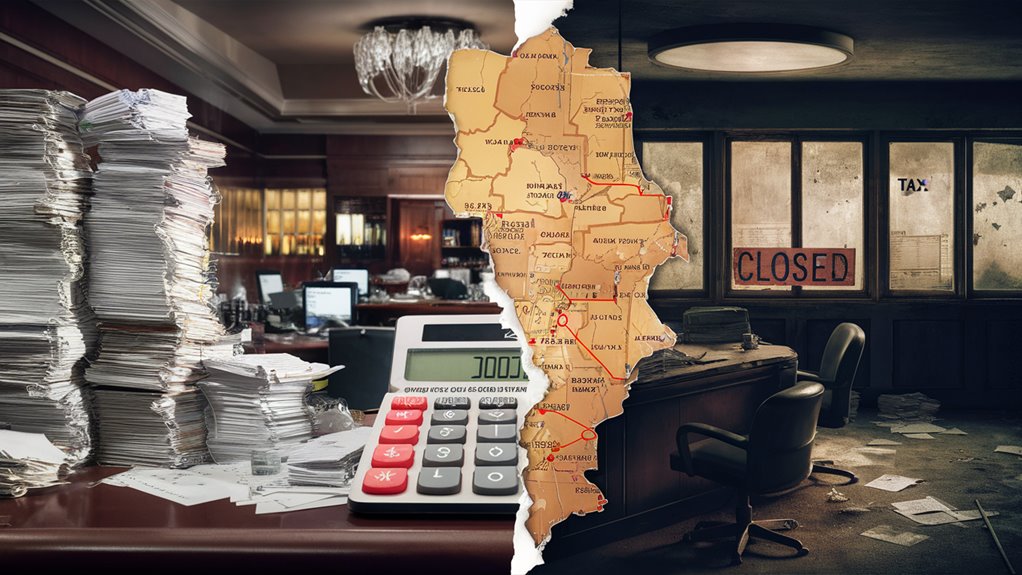
Let's talk about regional laws and online gambling – you know, those tricky rules that can make or break your gaming platform. Many people jump into the online gambling business thinking it's just about building a flashy website and watching the money roll in. Well, here's the thing: regional laws are actually the secret sauce to success in this industry.
Think of these regulations like a complex puzzle where each piece needs to fit perfectly. They affect everything from how you handle payments to the way you can advertise your platform. You might have the most impressive gambling site out there, but without understanding the legal landscape, you're basically rolling dice blindfolded.
The global online gambling market is huge, no doubt about it. But here's what catches most entrepreneurs off guard: every jurisdiction has its own rulebook. It's kind of like trying to play chess while the rules keep changing depending on which square you're on. One country might give you the green light for certain games, while another could slap you with hefty fines for the exact same thing.
So before you dive headfirst into this exciting world, take some time to really get to know the legal requirements in your target regions. Trust me, nothing kills momentum faster than discovering you've accidentally crossed legal boundaries you didn't even know existed. The good news? Once you understand these laws and how they work together, you'll be way ahead of the competition who skipped this crucial homework.
Understanding Local Market Compliance

Let's break down local market compliance in online gambling – it's trickier than you might think, but we'll make it simple to understand.
You know how every country has its own rules about gambling? Well, it all comes down to three main things: who's in charge, what paperwork you need, and how you need to run things.
Think of it like getting a driver's license – each state has different requirements, right?
First up, you've got to figure out who's calling the shots in each area. Different places have different gambling authorities, and they each have their own way of doing things.
It's kind of like dealing with different landlords – each one has their own house rules you need to follow.
Now, about those licenses and permits – this is where it gets interesting. Some places just want basic business registration, while others require a full-blown gambling license with all the bells and whistles.
You'll need to prove you've got enough money in the bank, go through regular check-ups, and keep tons of paperwork.
When it comes to day-to-day operations, you've got to play by local rules. This means checking IDs properly, helping people gamble responsibly, and handling money the right way.
Some countries are super strict about how you process payments, while others are more relaxed.
Before jumping into a new market, do your homework – it's like checking the weather before a big trip. You'll want to know exactly what you're getting into.
Set up systems to keep track of all the rules you need to follow, and keep your paperwork up to date.
Remember, getting this wrong can cost you big time. We're talking serious fines, losing your license, or even legal trouble.
Trust me, staying on top of local compliance might seem like a hassle, but it's way better than dealing with the alternative!
Cross-Border Payment Regulations

Let's break down the complex world of cross-border payment regulations in online gambling. You know how tricky it can be to send money internationally, right? Well, when it comes to gambling payments, things get even more interesting.
Think of navigating these regulations like crossing multiple borders on a road trip – each country has its own rules about what you can bring in and take out.
Some places will welcome your credit card with open arms, while others might insist you use local payment methods only. Pretty challenging stuff if you're planning to operate across different markets.
Here's the thing about payment compliance – it's not just about moving money around.
You've got anti-money laundering rules to follow, transaction limits to watch, and different reporting requirements in each country. Some banks won't touch gambling payments with a ten-foot pole, while others require special permits or partnerships with local providers.
When it comes to actually handling payments, you'll need to juggle quite a few balls.
Imagine trying to keep track of various payment methods – credit cards might work in one country but be totally off-limits in another. E-wallets could be the go-to choice somewhere else, and some regions might even be open to cryptocurrency transactions.
The tax side of things adds another layer to consider.
You'll need to keep detailed records of every penny that crosses borders, sort of like maintaining a really thorough travel diary, but for money. This means setting up robust systems to track transactions and verify customer identities.
Many operators find it helpful to team up with payment providers who really know their stuff about local regulations – kind of like having a trusted local guide in each market.
Remember, staying compliant isn't just about ticking boxes. It's about understanding how different rules interact and making sure you're playing by everyone's rulebook.
Take your time to get it right, and don't hesitate to seek expert advice when needed.
Licensing Requirements By Region

Let's talk about gambling licenses, because navigating these requirements can feel like solving a puzzle. Each region has its own unique set of rules, and believe me, they take them seriously.
You know how Europe is often strict about regulations? Well, that definitely applies here. Places like Malta and the UK don't mess around – they want to see every detail of your financial records, regular audits, and solid measures to protect players.
It's pretty intense, but it makes sense when you think about it.
Asia's a whole different ball game. Picture trying to navigate through a maze where some doors are completely locked (that's the countries where online gambling is banned), while others, like the Philippines, have clear pathways through PAGCOR licensing.
Just make sure you've got deep pockets for those capital requirements and top-notch gaming platforms.
Now, North America's interesting because it's like a patchwork quilt of different rules. Take New Jersey, for instance. They're pretty particular about having your servers right there in the state, and they'll dig deep into your background before giving you the green light.
Up in Canada, you'll need to buddy up with provincial lottery corporations to get anywhere.
The Caribbean, especially Curacao, used to be known as the easy route, but things have changed lately. They've tightened their belt, so to speak.
Still, compared to some other regions, it might be your best bet if you're just starting out. Just remember, wherever you're applying, you'll need to prove you're financially solid, can fight money laundering, and know how to keep player data safe.
Look, there's no shortcuts around these requirements. Think of them as your ticket to the game – without them, you're not even getting through the door. The trick is figuring out which region's rules best match your business model and capabilities.
Player Protection Standards

Let's talk about player protection in online gambling – it's more important than you might think. You know how we all want to feel safe when spending money online? Well, that's exactly what gambling standards are designed to do.
Think of these protection measures as your personal safety net. Want to take a break from gambling? No problem.
Regulated sites give you tools like self-exclusion programs and deposit limits, kind of like having a responsible friend watching your back. If you ever feel like things are getting a bit much, you can easily hit pause or set up cooling-off periods.
Before you can start playing, you'll need to prove who you are. It's just like showing your ID at a casino, but online.
These sites keep an eye on your playing patterns too, similar to how a good bartender might notice if someone's had a bit too much. If they spot any concerning behavior, they'll step in with helpful resources and friendly warnings.
Your money is protected too, and this is pretty cool. Gambling sites have to keep your funds separate from their business accounts, just like a bank keeps your savings safe.
They're also super careful with your personal information, treating it like the valuable data it is. And if anything ever goes wrong? There's always a clear path to sort things out through their dispute resolution process.
The whole system is designed to keep things fair and fun while looking out for your wellbeing. Think of it as having a safety instructor right there with you, making sure you can enjoy the experience without putting yourself at risk. Pretty reassuring, right?
Regional Tax Implications

Let's talk about how taxes shape the world of online gambling – it's more interesting than you might think! Different regions handle gambling taxes in their own unique ways, and this affects both the casinos and players like you and me.
Think of it this way: when you're playing online, your tax situation really depends on where you're logging in from. Some countries make the gambling sites shoulder most of the tax burden, while others expect players to report their winnings.
Take the UK and US, for example. If you're betting from Britain, you won't pay taxes on what you win because the gambling companies already pay a hefty 21% tax on their earnings. But if you're playing from the US, every dollar you win needs to go on your tax return.
You know how businesses tend to follow the path of least resistance? Well, the same goes for online gambling operators. Places with sky-high tax rates often struggle to attract legitimate gambling sites – it's just basic economics.
Instead, these operators might set up shop in regions with more reasonable tax policies, where they can create competitive markets and still turn a profit. This means if you're in an area with balanced tax rules, you'll probably have more choices for where to play and better protection as a player.
It's kind of like how businesses might choose to open stores in cities with lower commercial tax rates – same principle, different game!
Marketing Within Legal Boundaries

Let's face it – marketing in the online gambling world can feel like walking through a minefield of regulations. Every region has its own rulebook, and getting it wrong can cost you big time, from hefty fines to losing your license altogether. But don't worry, we'll help you make sense of it all.
You know how different countries have different customs and traditions? Well, it's the same with gambling marketing rules. What works in one place might get you in hot water somewhere else.
The basics are pretty straightforward though – no targeting kids, no promising people they'll become millionaires overnight, and always include those responsible gambling messages. It's just common sense, really.
Social media marketing is where things get really interesting. Think about it – Facebook and Twitter don't care about borders, but gambling laws definitely do.
That's why you'll need some clever tech tools to make sure your ads only pop up where they're allowed. And if you're thinking about working with influencers, remember they need to play by the same rules as everyone else.
Want to stay on the right side of the law? Create a solid system for checking all your marketing materials before they go live. It's kind of like having a safety net – regularly review your ads, promotions, and bonus offers to make sure they're still following the rules in each region.
Trust me, it's much easier to catch potential issues early than to deal with regulators knocking on your door later.
Enforcement and Penalties

Let's talk about what really happens when gambling operators break the rules – it's not just a slap on the wrist anymore. Think of gambling regulations like traffic laws.
Sure, you might get away with speeding once or twice, but eventually, those flashing lights will appear in your rearview mirror.
The consequences? They're pretty serious. Depending on where you're operating, you could be looking at massive fines that'll make your accountant sweat, losing your license to operate, or in some cases, trading your office chair for a prison cell.
In the UK, for instance, the Gambling Commission doesn't mess around. They can hit you with fines worth up to 10% of what you make in a year.
Over in Singapore, they take it even further, with jail time up to seven years for serious violations.
You might think running your operation from some tropical tax haven will keep you safe, but here's the thing: enforcement agencies are getting smarter by the day.
They've got high-tech tracking systems, international partnerships, and ways to follow your digital trail wherever it leads. From your money movements to your customer data, they're watching it all.
So what's the smart play here? Well, keeping detailed records is your best friend. Think of it as your safety net.
Make sure you've got solid age checks in place, regularly review your operations, and always stay in the loop about new rules in your markets. Because just like technology keeps evolving, so do the regulations and how they're enforced.
Remember, it's always cheaper and easier to play by the rules from the start than to try fixing things after you've gotten into trouble.
The gambling industry isn't what it used to be, and those who think they can outsmart the system usually learn that lesson the hard way.
Common Questions
How Do Regional Gambling Laws Affect Cryptocurrency Transactions in Online Casinos?
Let's talk about how crypto gambling rules can really vary depending on where you call home. You know how different countries have their own takes on cryptocurrency? Well, it's even more complex when it comes to using crypto for online betting.
Think of it like a global patchwork quilt. In some places, you're totally free to use Bitcoin or other digital currencies at online casinos without any fuss. Take countries like Malta or Curacao, where crypto gambling is as normal as using your regular credit card. But then you've got other spots on the map where things get a bit tricky.
Some regions are pretty strict about it. For instance, if you're in the US, the rules can change just by crossing state lines. And in countries like China or India, you might find that crypto gambling transactions face serious restrictions or are completely off-limits.
The interesting part is how these laws keep evolving. One month a country might be totally fine with crypto gambling, and the next they could introduce new regulations that change everything. This means you've got to stay on your toes and keep up with your local rules before jumping into any crypto casino action.
Can Operators Transfer Existing Licenses When Expanding Into Different Jurisdictions?
Let's talk about gambling licenses across different jurisdictions, because it's not as straightforward as you might think. When operators want to expand their gambling business into new territories, they often wonder if they can simply use their existing licenses. Well, here's the thing – gambling licenses typically don't transfer between different regions.
Think of it like a driver's license. Just because you're licensed to drive in one country doesn't mean you can automatically drive everywhere else. Each jurisdiction has its own unique set of rules, requirements, and regulatory standards that operators need to meet.
So what does this mean for gambling operators? Well, they'll need to start fresh with new license applications in each territory they want to enter. It's a bit like starting from square one, where you'll need to prove compliance with local regulations, show financial stability, and demonstrate your commitment to responsible gambling practices.
The process can be time-consuming and complex, but it's designed to protect players and ensure fair gaming practices in each region. Some jurisdictions might have stricter requirements than others, and what works in one place might not cut it somewhere else.
What Role Do Internet Service Providers Play in Regional Gambling Restrictions?
Let's break down the interesting role Internet Service Providers play in managing online gambling restrictions. You know how different regions have their own rules about gambling? Well, ISPs are actually right in the middle of enforcing these regulations.
Think of your ISP as a digital traffic cop of sorts. When you try to access gambling websites, they can tell where you're connecting from and whether those sites are allowed in your area. It's pretty similar to how streaming services know which shows you can watch based on your location.
These providers use something called geo-blocking technology, which sounds fancy but is really just a way to check if you're in a restricted area. If you are, they'll step in and prevent access to gambling platforms that aren't permitted in your region. They're constantly monitoring network traffic too, kind of like keeping an eye on digital highways to make sure everyone's following the local rules.
What's interesting is that ISPs don't really have a choice in the matter. They have to work closely with government agencies and regulatory bodies to enforce these restrictions. So if you've ever wondered why you can't access certain gambling sites, your ISP is probably just doing its job to keep things legal and above board in your area.
How Often Do Regional Gambling Laws Typically Undergo Major Revisions?
You know, gambling laws are pretty dynamic when it comes to major changes. While we often see significant updates happening roughly every 3-5 years, the reality is that these revisions can pop up more frequently depending on what's going on in society. Think about it – when new betting apps hit the market or public concerns start making headlines, lawmakers tend to respond pretty quickly.
Let's break it down a bit. Sometimes a state might cruise along with the same regulations for several years, but then suddenly need to make quick changes because of emerging issues. Maybe there's growing concern about online gambling addiction, or perhaps a neighboring state just legalized sports betting, creating competitive pressure. These situations often trigger faster revisions than the usual timeline.
The interesting thing is that different regions move at their own pace. Some states take a more cautious approach, sticking to that 3-5 year review cycle, while others are constantly tweaking their regulations to keep up with changing times. It really depends on local attitudes, economic needs, and political climate in each area.
What's really fascinating is how technology keeps pushing these timelines. When new betting platforms or payment methods show up, regulators often can't wait for the usual revision cycle – they need to adapt right away to stay relevant and maintain proper oversight.
Do Gambling Software Developers Need Separate Licenses for Each Regional Market?
Let's be real about gambling software licenses – things can get pretty complex when you're dealing with different regions. You know how each country or state has its own rules about gambling? Well, the same goes for the software behind it.
Think of it like getting a driver's license. Just because you can drive in California doesn't mean you're automatically good to go in Germany or Japan. Each place wants to make sure you meet their specific requirements, and gambling software works the same way.
In most cases, yes, you'll need separate licenses for each market you want to enter. The tricky part is that every jurisdiction has its own set of hoops to jump through. Some might want extensive security audits, while others focus more on player protection features or random number generator testing.
For example, if you're developing slot machine software, you might need to get it certified by Gaming Laboratories International (GLI) for some markets, while others might require testing from their own government agencies. And just to keep things interesting, these requirements can change pretty frequently.
